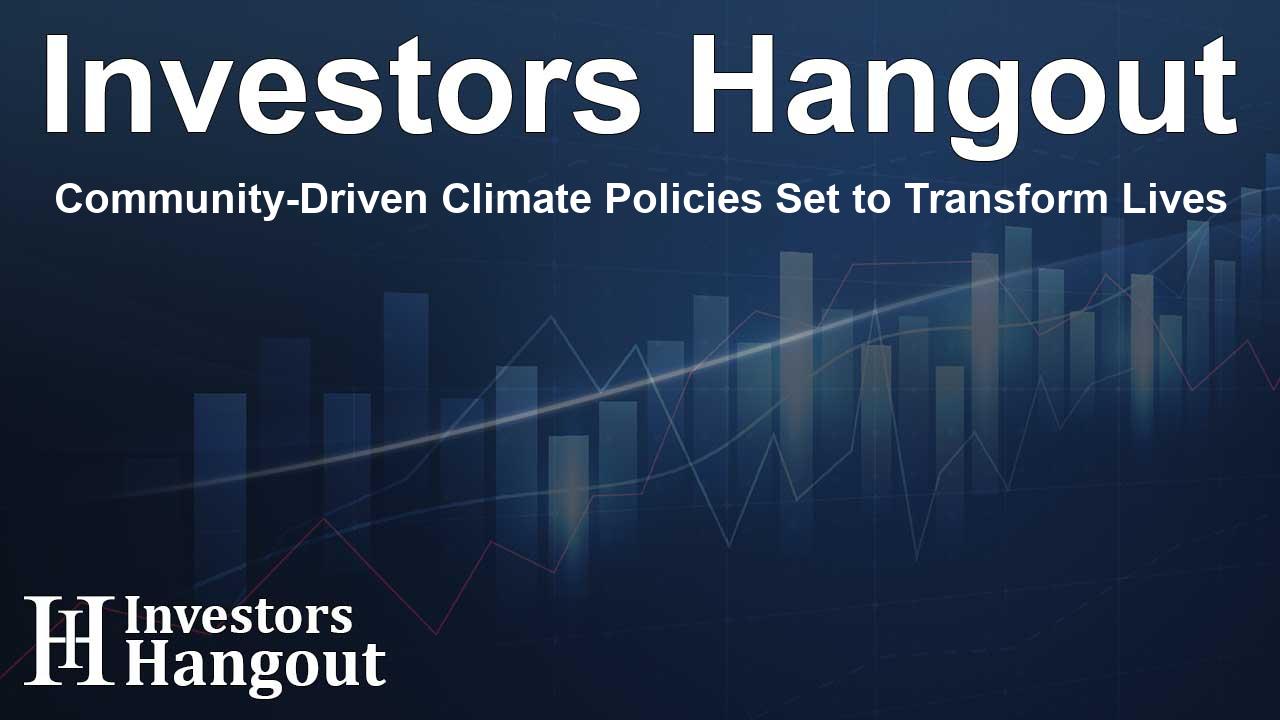Community-Driven Climate Policies Set to Transform Lives

Community-Led Environmental Changes Make Waves
The Solutions Project has recently released an insightful analysis highlighting significant victories in climate justice across the United States. This report shines a spotlight on notable successes achieved through grassroots movements led by frontline communities.
By collaborating with Just Solutions, The Solutions Project offers a detailed examination of nine impactful policy advancements stemming from these community-led initiatives. These policies not only address the climate crisis but also have the potential to benefit over 41 million individuals while unlocking more than $4.3 billion in annual public investments.
At the heart of these achievements are multi-year campaigns spearheaded by community organizations, primarily representing Black, Indigenous, and Communities of Color. These groups are often the first to feel the effects of climate change and environmental degradation, making their role in these campaigns crucial. The successes outlined in the report work to alleviate environmental burdens while creating employment opportunities and investing in clean energy and public health.
Gloria Walton, the President & CEO of The Solutions Project, emphasizes the importance of these community initiatives: "At a moment when the federal government is attempting to dismantle vital climate initiatives, this report highlights the essential knowledge possessed by local leaders and what can be accomplished when they are adequately supported. Our partners are not just influencing policy; they are making a real difference and illustrating what a Just Transition truly looks like in practice. These wins present a blueprint for equitable climate policies that prioritize accountability and community insights. We must empower these leaders more than ever, as their work is pivotal in steering us toward a sustainable future."
Highlights of Major Policies from the Report
Significant Climate Legislation
The report showcases several groundbreaking policies that illustrate the power of local initiatives:
- New York's Climate Superfund Act, which mandates that fossil fuel corporations contribute approximately $3 billion annually for climate resilience initiatives.
- A pivotal settlement with Chevron in Richmond, California, that guarantees a remarkable $550 million investment over the next decade into the community, addressing pollution from one of America's largest polluters.
- A landmark rule from the EPA aimed at regulating chemical emissions, a significant win for Gulf South communities striving to combat toxic pollution.
Aiko Schaefer, the Director of Just Solutions, reflected on the findings, stating, "The evidence reveals that viable solutions to the climate crisis are being innovated and implemented by the very communities who are most affected. Positive transformations are not merely aspirational; they are actively occurring in several locales. To amplify these successes, increased funding is essential to broaden successful initiatives, foster new concepts, and safeguard the climate solutions that are already in place."
While the highlighted victories are noteworthy, they currently face challenges due to shifting political landscapes. Continuous support from philanthropic organizations is vital to protect these advancements, enhance effective models, and propel new policies driven by the communities themselves.
Ongoing Support for Community Initiatives
It is imperative for institutional supporters and policymakers to rally around these community-led initiatives. Not only do they signify the determination of local leaders to forge a sustainable future, but they also represent a critical turning point in climate policy. Collaboration among diverse stakeholders, including government entities and non-profits, will be key to ensuring these policies are not only preserved but also expanded upon.
Such strides underline a collective belief in climate justice, propelling communities toward long-lasting change. As we witness these developments, the importance of fostering partnerships and mobilizing resources cannot be overstated. Together, community-based organizations and supportive allies can foster a brighter, more equitable approach to environmental stewardship.
Frequently Asked Questions
What does the report by The Solutions Project highlight?
The report emphasizes significant community-driven climate policy wins across the U.S. that benefit millions while promoting climate justice.
Who led the community organizing campaigns featured in the report?
The campaigns were primarily led by frontline groups, which include Black, Indigenous, and Communities of Color, who are most affected by climate change.
What impact do the included policies have?
These policies can positively benefit over 41 million people and generate substantial public investment towards climate resilience.
What challenges do these policies currently face?
The policies are under threat from the existing political climate, making sustained funding and support essential for their continuation and expansion.
How can individuals support community-driven climate initiatives?
Individuals can advocate for funding, participate in community organization, and support policies aimed at climate justice to help empower local leaders.
About The Author
Contact Kelly Martin privately here. Or send an email with ATTN: Kelly Martin as the subject to contact@investorshangout.com.
About Investors Hangout
Investors Hangout is a leading online stock forum for financial discussion and learning, offering a wide range of free tools and resources. It draws in traders of all levels, who exchange market knowledge, investigate trading tactics, and keep an eye on industry developments in real time. Featuring financial articles, stock message boards, quotes, charts, company profiles, and live news updates. Through cooperative learning and a wealth of informational resources, it helps users from novices creating their first portfolios to experts honing their techniques. Join Investors Hangout today: https://investorshangout.com/
The content of this article is based on factual, publicly available information and does not represent legal, financial, or investment advice. Investors Hangout does not offer financial advice, and the author is not a licensed financial advisor. Consult a qualified advisor before making any financial or investment decisions based on this article. This article should not be considered advice to purchase, sell, or hold any securities or other investments. If any of the material provided here is inaccurate, please contact us for corrections.
